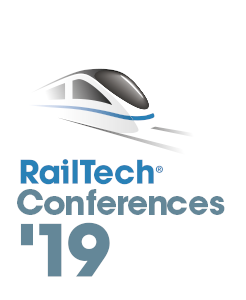 Kimmo Oostermeyer
Kimmo Oostermeyer
Expert in Infrastructure and Operations RebelGroup
Presentation title:
Four elements to increase OMR cost effectiveness
Summary:
High-speed railways are generally a success in terms of market share over other modes of transport, but commercial viability is not a given due to the high infrastructure costs. A case study for the replacement of all flights on the Paris-Amsterdam corridor by high-speed trains, revealed that the operational cost for the running the train service are about two-thirds higher than the plane. Reason for this difference is the high track access cost. Lowering these cost should be a matter of priority to increase the attractiveness of the train and strengthen its position in the modal split.
The operations, maintenance and renewal (OMR) cost are a major component of the track access charges. In our recently completed third OMR cost effectiveness study, we have seen that there is a big spread in maintenance cost amongst the participants. The participants included all European high-speed rail infrastructure managers. This study was not a simple cost benchmarking exercise, it assessed all cost drivers and maintenance approach resulting in deep insights in best practice maintenance approach, the cost and realised performance and the impact of institutional arrangements including service level agreements. By adopting best practices most railways can reduce cost significantly.
The presentation will explain what choices should be made to keep the OMR cost as low as possible – ranging from design choices linked to the complexity of the railway to performance incentivisation, asset management based learning organisation and optimal maintenance approach. All results based on facts distilled from the OMR effectiveness study.
Speaker biography:
Kimmo Oostermeyer brings 20 years of professional experience in the transportation industry; the first nine years working with an engineering firm and the last eleven as consultant with Booz&Co, LeighFisher and now RebelGroup. Kimmo combines deep functional expertise of transportation systems, asset management and railway operations with contracting and financing structures. He bridges the gap between engineers and economists, by bringing in the understanding of the operational impact of contracting mechanisms and incentivization. Further, Kimmo provides in-company trainings on consultancy skills and is a certified trainer with FranklinCovey on business development training.
In recent years, Kimmo was involved in e.g. maintenance contract restructuring, cost and organisation optimisation, high-speed rail cost effectiveness benchmarking, railway resignalling, asset management strategies and implementation, development of performance metrics and definition of performance payment regimes for P3 contracts.
Kimmo is based in Europe, he has worked on projects in 20 countries worldwide.
